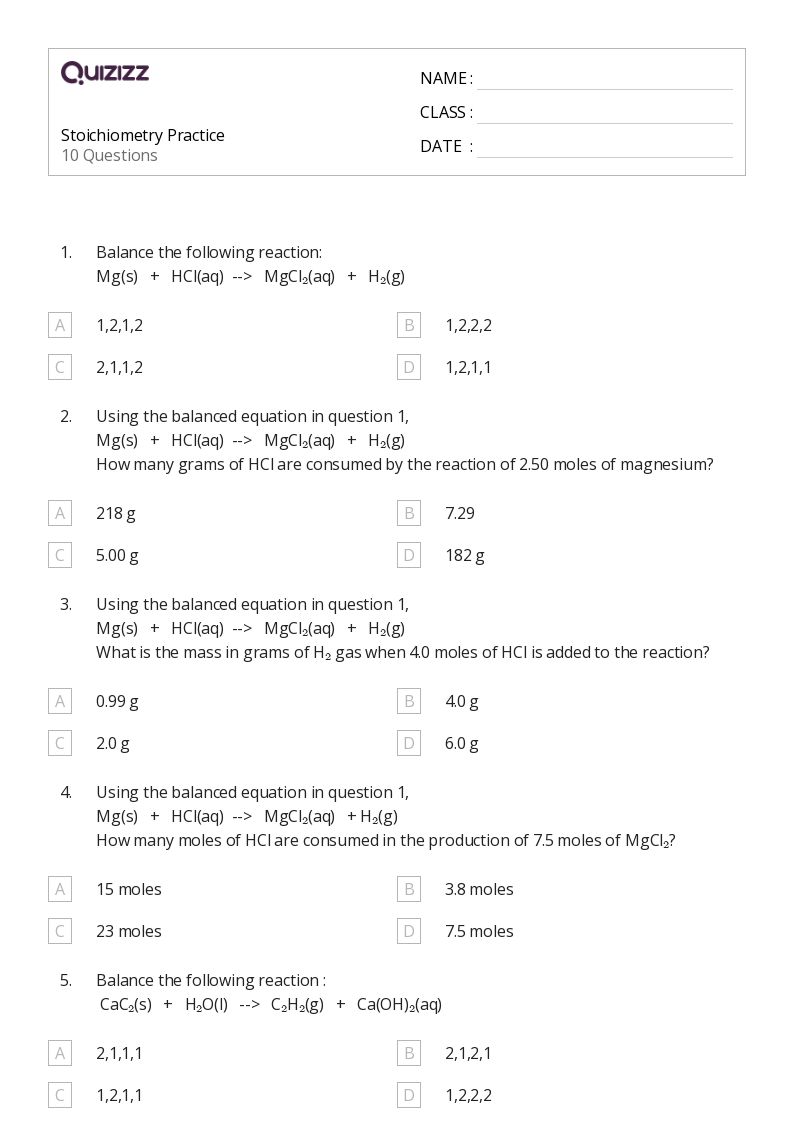Stoichiometry Of Gases Worksheet
Stoichiometry Of Gases Worksheet - What volume of propane reacted? What is the number of moles of gas in this sample? Up to 24% cash back ideal gas law & stoichiometry 1. Use the gas laws we have learned to solve each of the following problems. 1) using masses & molar masses, & 2) concentrations. • we have looked at stoichiometry: Worksheet 4 (b) what is the simplest formula of x?
Support your students in mastering stoichiometry with worksheets that involve mole ratios, mass calculations, and balanced equations. (c) given that the molar mass of the compound is 362, what is its molecular formula? N = v m v and. Given gas law work formula.
Use the gas laws we have learned to solve each of the following problems. (c) given that the molar mass of the compound is 362, what is its molecular formula? A sample of pure gas at 27°c and 380 mm hg occupied a volume of 492 ml. The relevant formulas for calculations are: Up to 24% cash back gas stoichiometry worksheet please answer the following on separate paper using proper units and showing all work. What is the number of moles of gas in this sample?
Determine the number of moles of carbon dioxide gas, water, and sodium chloride formed by the reaction of 42.0 grams of sodium bicarbonate (baking soda) reacting with excess hydrochloric. The chemical equations given are all balanced. Up to 24% cash back gas stoichiometry worksheet please answer the following on separate paper using proper units and showing all work. Show all your work for credit. Each of the chemical equations must first be balanced.
Up to 24% cash back gas stoichiometry worksheet please answer the following on separate paper using proper units and showing all work. Each of the chemical equations must first be balanced. Worksheet 4 (b) what is the simplest formula of x? At what temperature will 0.0100 mole of argon gas have a volume of 275 ml at 100.0 kpa?
• We Can Use Stoichiometry For Gas Reactions.
Show your work, including proper units, to earn full credit. 1) using masses & molar masses, & 2) concentrations. N = v m v and. The relevant formulas for calculations are:
Use The Gas Laws We Have Learned To Solve Each Of The Following Problems.
A sample of pure gas at 27°c and 380 mm hg occupied a volume of 492 ml. 1) balance each combustion reaction equation and use volume ratios to determine the volume of oxygen needed to react with each fuel. The chemical equations given are all balanced. Please note that these problems.
Silver And Nitric Acid React.
What is the number of moles of gas in this sample? What volume of o2 is produced when 28.5 g of. • we have looked at stoichiometry: Use your knowledge of stoichiometry and the ideal gas law to solve the following problems.
Chemistry Document From Liberty University Online Academy, 2 Pages, Carlie Stickland 1/24/2025 Name Date Gas Stoichiometry Practice Problems Directions:
Solve each of the following problems. Up to 24% cash back ideal gas law & stoichiometry 1. Up to 24% cash back gas stoichiometry worksheet please answer the following on separate paper using proper units and showing all work. Ideal gas law and stoichiometry name_____ use the following reaction to answer the next few questions:
Use the gas laws we have learned to solve each of the following problems. The chemical equations given are all balanced. Up to 24% cash back learning target 8.2: Given gas law work formula. Ideal gas law and stoichiometry name_____ use the following reaction to answer the next few questions:






